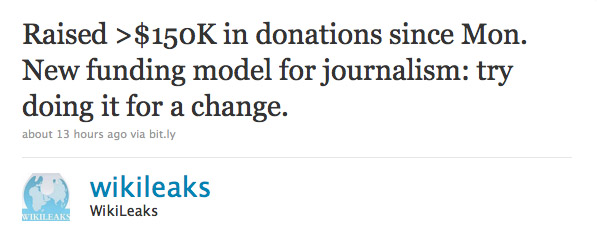Now that it is relatively simple for anyone in possession of leaked documents to publish them directly to the internet, is there any reason to pass them on to a national newspaper?
With the viral advantages of internet publishing and social networking, can dedicated sites such as Wikileaks – which made a huge impact two weeks ago with the release of a classified military video showing the killing of civilians in Baghdad by a United States Apache Gunship – replace mainstream news organisations as the place to take leaked information?
Noam Cohen of the New York Times casts an eye back at the case of Daniel Ellsberg and the Pentagon Papers, and asks how it might unravel differently today.
[I]f someone today had the Pentagon Papers, or the modern equivalent, would he still go to the press, as Daniel Ellsberg did nearly 40 years ago and wait for the documents to be analysed and published? Or would that person simply post them online immediately?
